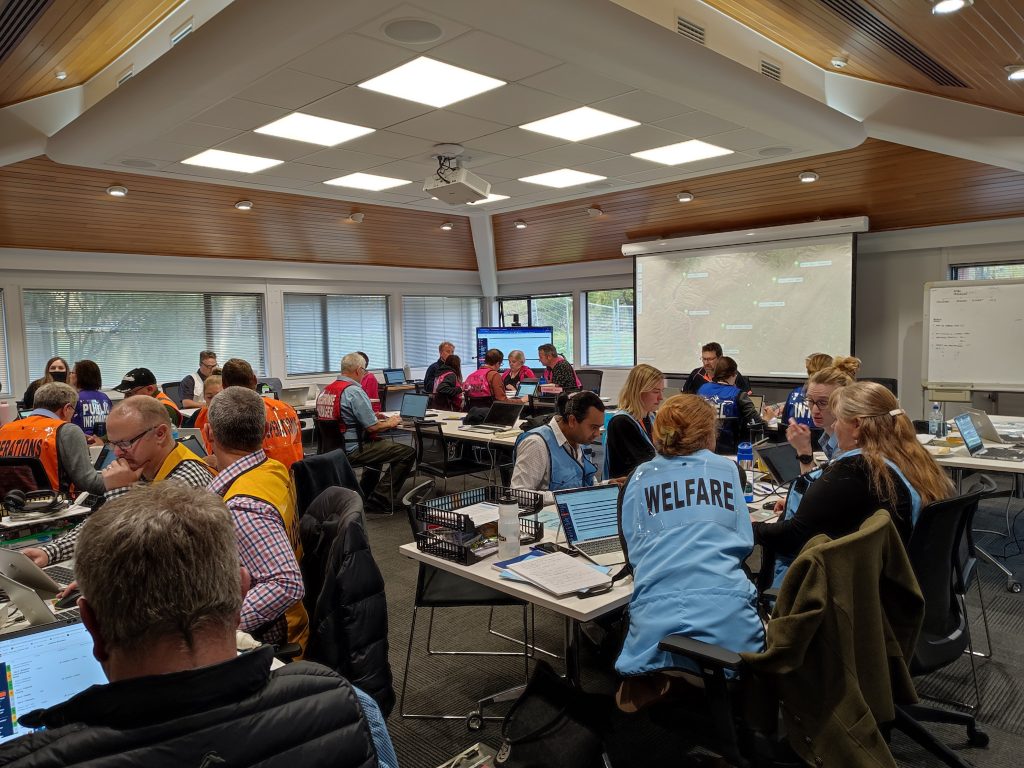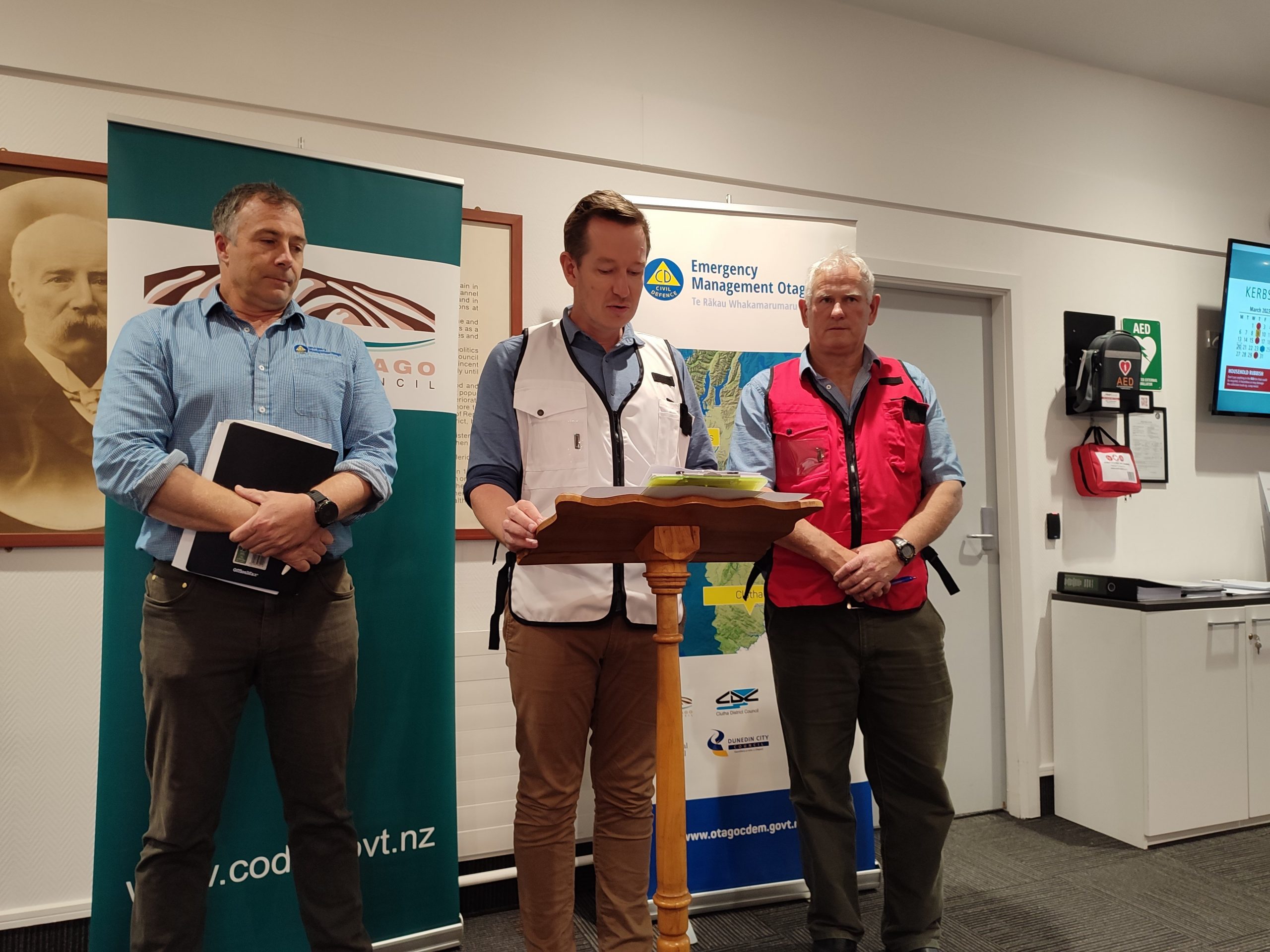You cannot plan a natural disaster, but you can prepare in case one may strike — and that is exactly what the Central Otago District Council did last week.
It was all hands on deck as staff took part in a training exercise aimed at honing their response to a natural disaster.
Partnering with Otago Civil Defence and Emergency Management, the exercise saw about 40 council staff assume roles in the council’s Emergency Operations Centre, as they would in a real life disaster.
Throughout the day, staff worked in teams managing all aspects of the council’s response, from delegating emergency supplies to co› ordinating evacuation points for affected communities.
The scenario, an extreme weather event that imagined flooding affecting parts of Canterbury and Otago, was fed to the teams in periodic updates, requiring them to react to a changing situation in real›time.
The exercise even included a mock media briefing, with council staff fielding questions from The News reporters who were there to cover the training event.

Dan Andrew, an inland team leader for Otago Civil Defence and Emergency Management, said the annual exercises were crucial in ensuring council staff were both qualified and capable of handling an unexpected crisis.
‘‘It’s a perishable skill, so if we’re not practising, and we just wait for the next event, we’re rusty.’’
Due to Covid, it was the first time in three years the council had been able to conduct the training in person.
The severe weather event was one of several scenarios the team could run, and had largely been chosen because it was the most common type of disaster to affect the region, Otago Civil Defence and Emergency Management adviser for Central Otago Derek Shaw said.
He said the organisation was ‘‘always learning’’.
They had implemented findings from this year’s Auckland and Hawke’s Bay flood responses into the day’s exercise.
‘‘We don’t just rest on our laurels — we’re not that smug that we think it won’t happen here.
‘‘We hope we never have to use it, but the [council] is prepared and this is part of that preparedness.’’





